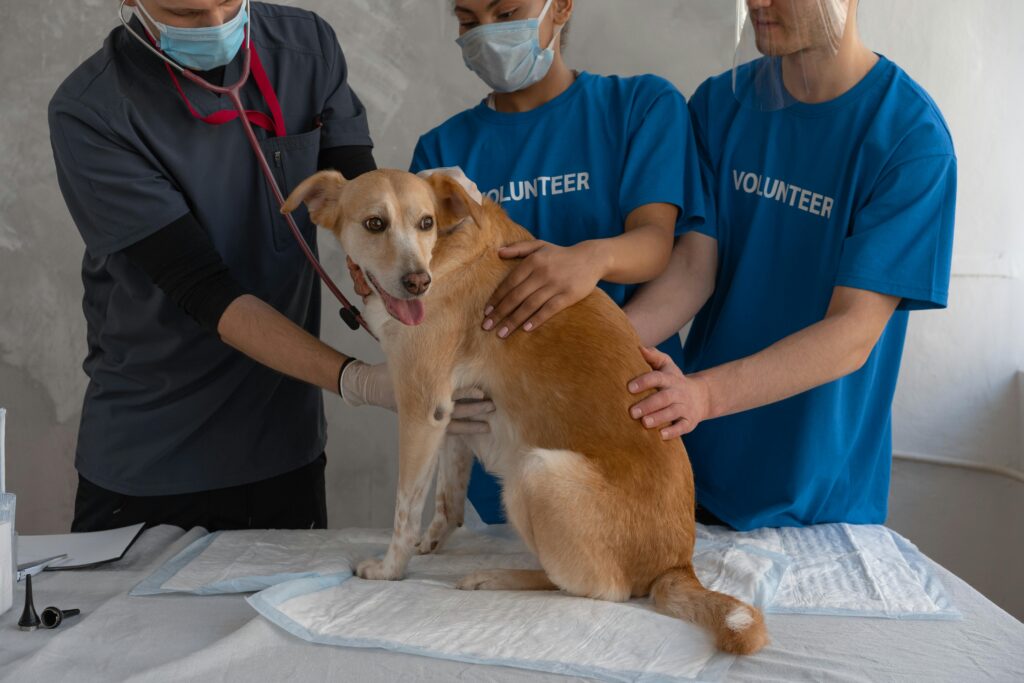
Bringing home a new puppy is a heartwarming experience, but with that joy comes a flood of questions—especially about their growth and health. One of the most common concerns among new dog owners is: Is my puppy growing normally? Understanding what to expect at each stage can help you feel more confident and ensure your furry friend is developing on track.
Understanding Growth Milestones by Age
Every puppy grows at its own pace, depending on breed, genetics, and overall health. However, there are general age-based milestones you can look for:
Birth to 2 Weeks (Neonatal Stage):
Your puppy will be mostly sleeping and nursing. Their eyes and ears are closed, and their weight should double by the end of this stage.
2 to 4 Weeks (Transitional Stage):
Puppies begin to open their eyes, respond to sound, and start wobbly walking. During this phase, social behaviors start to emerge.
4 to 8 Weeks (Socialization Stage):
You’ll see a burst of energy and curiosity. Puppies become more aware of their surroundings, play with littermates, and start eating soft puppy food.
8 to 16 Weeks:
This is a key growth period. Puppies are highly impressionable and physically active. If you’re asking yourself is my puppy growing normally, check for healthy weight gain, increasing coordination, and emerging personality.
4 to 6 Months:
Teething is usually in full swing, and they may go through a “gangly” phase. Rapid growth is typical now, and their limbs might seem out of proportion temporarily.
6 to 12 Months:
Most puppies reach near-adult height by this stage but will continue to fill out in muscle and weight. Small breeds may be nearly full-grown, while large breeds have more growing to do.
Signs Your Puppy Is Growing Normally 🐶✨
Here are common signs of healthy development:
- Steady Weight Gain:
Your puppy should be gaining weight regularly. A good rule of thumb is weekly weigh-ins. Rapid or no weight gain could be a red flag. - Shiny Coat and Healthy Skin:
A sleek, shiny coat usually indicates proper nutrition and good overall health. - Playfulness and Energy:
Healthy puppies are active, curious, and eager to play. If your pup is sluggish or overly tired, consult your vet. - Clear Eyes and Clean Ears:
Eyes should be bright and free from discharge. Ears should be clean and odor-free. - Normal Stool and Appetite:
Regular bowel movements and a healthy appetite are strong indicators of good growth and digestive health. - Proportional Body Development:
Although breeds vary, your puppy’s legs, torso, and head should grow in a relatively balanced way.
Red Flags to Watch Out For 🚨
Sometimes growth doesn’t go as expected. If you’re wondering is my puppy growing normally, keep an eye out for these concerns:
- Sudden weight loss or gain
- Limping or signs of pain during movement
- Swollen joints or lameness
- Low energy levels or excessive sleepiness
- Poor appetite or frequent vomiting/diarrhea
- Delays in reaching developmental milestones (walking, eating solid food, teething)
If you notice any of these signs, don’t wait—schedule a vet visit to rule out any underlying health issues.
The Role of Breed in Puppy Growth 🐕📊
Breed plays a significant role in how quickly or slowly your puppy grows:
- Small Breeds (e.g., Chihuahuas, Toy Poodles): Reach adult size around 9-12 months.
- Medium Breeds (e.g., Cocker Spaniels, Border Collies): Typically mature between 12-15 months.
- Large Breeds (e.g., Golden Retrievers, Labradors): Can take 18 months or more to reach full maturity.
- Giant Breeds (e.g., Great Danes, Mastiffs): May continue growing until 24 months.
Knowing your puppy’s breed can help set expectations and answer the question is my puppy growing normally more accurately.
What You Can Do to Support Healthy Growth 🍽️🦴
- Feed a Balanced Puppy Diet:
Choose a vet-recommended, breed-appropriate puppy food. Look for AAFCO approval and consult your vet for feeding amounts. - Provide Regular Exercise:
Physical activity helps with bone and muscle development. Tailor the activity to your puppy’s age and breed needs. - Stay Consistent with Vet Visits:
Routine check-ups ensure vaccinations are on track and your puppy is hitting growth milestones. Your vet can also track weight and offer dietary guidance. - Mental Stimulation Matters:
Healthy growth isn’t just physical. Play, training, and socialization all support cognitive development. - Track Their Growth:
Keep a puppy growth chart or log. Recording weight, height, and notable milestones can help you and your vet spot any trends or concerns early.
Final Thoughts 🐾💡
It’s completely normal to ask is my puppy growing normally, especially if you’re a first-time pet parent. By staying observant, keeping up with vet care, and ensuring your puppy gets proper nutrition and exercise, you’re already on the right track. Each pup is unique, so give them the love, care, and patience they need to grow into a happy, healthy dog.
If you’re unsure about your puppy’s development or just want peace of mind, don’t hesitate to contact your local vet—they’re your best partner in raising a well-balanced pup. PetsDogPuppy

